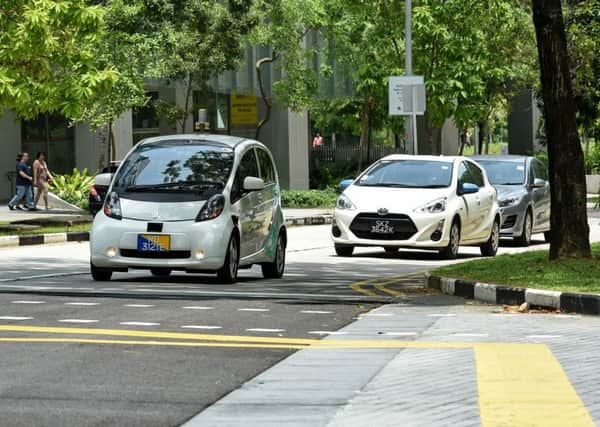Driverless cars could create ‘all-day rush hours’, campaigners warn


They said unless autonomous vehicle use in cities was regulated, their likely popularity could increase traffic by up to 150 per cent by 2050.
The Transport & Environment (T&E) group said a “wild west” unchecked rise in petrol and diesel-fuelled self-driving vehicles would also make climate goals “all but impossible to achieve”.
Advertisement
Hide AdAdvertisement
Hide AdIts report stated: “Automated vehicles with no driver could become so cheap to run they would encourage people, or even cars without people in them, to travel more and for longer.” It predicted Uber prices could more than halve.
The report said: “To ensure driverless vehicles do not lead to increased pollution, cities should refuse access for automated combustion engine cars. This could cut emissions by 23 per cent between now and 2050 compared to a world with no electric or driverless cars.”
However, the study also said: “The unregulated advent of driverless cars could increase traffic in European cities by 50 to 150 per cent by 2050, which would be like a rush hour that lasts all day.”
It added that even if only electric and other zero-emission models were permitted, that would not solve congestion problems because their convenience was likely to prove very attractive.
It would create “an increase in demand for car travel quickly filling any road space that might become available”.
T&E new mobility expert Yoann Le Petit said: “If we want sustainable mobility, we need to ban driverless cars with combustion engines and gradually reduce road space for cars in our cities.”
Colin Howden, director of Transform Scotland, said: “This report demonstrates that driverless cars, rather than being a panacea, could massively worsen congestion and even lead to increased climate emissions.
“There has been a deluge of hype about the opportunities that autonomous vehicle could bring. However, there has been very little detailed consideration of their potential downsides.”
Advertisement
Hide AdAdvertisement
Hide AdBut Neil Greig, policy director of motoring group IAM RoadSmart, said: “The fact driverless cars may prove more attractive than crowded buses and trains is no surprise and is a challenge to public transport operators, as much as it is to land use planners.”